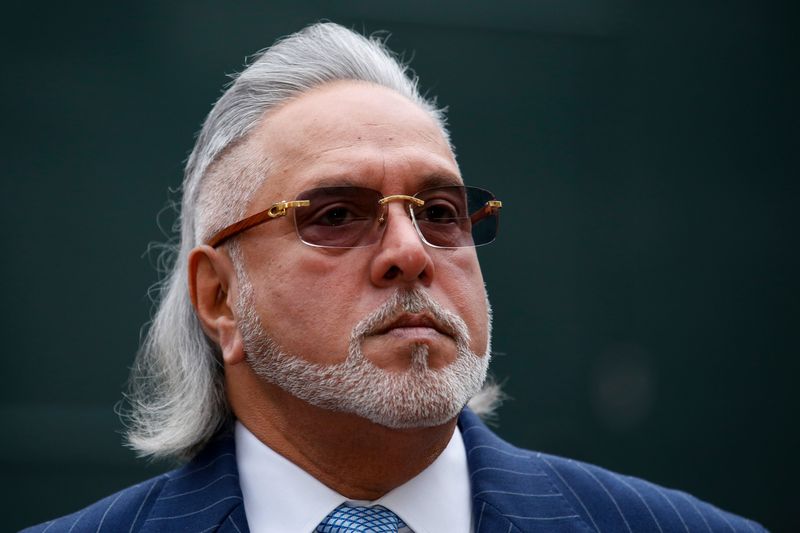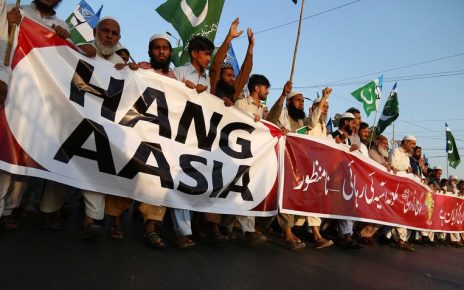New Delhi: Releasing its 360 page report, “Torture: India’s Self Made Hurdle to Extradition” (http://www.achrweb.org/wp-content/uploads/2018/12/IndiaRefoulement.pdf) analysing judgments of the foreign courts on India’s extradition requests, the Asian Centre for Human Rights (ACHR) stated that diplomatic assurances on improving prison conditions are not sufficient to extradite fugitives like Vijay Mallya.. During the hearing, Mallya, inter alia, had submitted that prison conditions in India amount to torture, inhuman and degrading treatment and India gave diplomatic assurances to upgrade Mumbai’s Arthur Road jail where Mallya will be held on his extradition to European standards. The Chief Magistrate Court is scheduled to rule today on Mallya’s extradition to India.
“India’s diplomatic assurances effectively means the Desi prisoners can rot in jails like “animals” and European returnee fugitives shall be provided facilities at par with European standards to meet legal obligations of the European countries with respect to the prohibition of extradition of a person “to a country where there are substantial grounds for believing that he or she would be in danger of being subjected to torture” as provided under Article 3 of the UN Convention Against Torture (UNCAT).” – stated Mr Dilip Chakma, Director of Asian Centre for Human Rights.
“Despite successful extradition of Christian Michel, the alleged middleman in the AgustaWestland chopper deal from the United Arab Emirates (UAE) on 4 December 2018, India is unlikely to secure extradition of most of the fugitives from the countries which have independent judiciary and ratified the European Convention on Human Rights (ECHR) and the UNCAT.” – further stated Mr Chakma.
Out of the 68 fugitives extradited to India from 2002 to 4 December 2018, 20 fugitives or 29% of the total fugitives were extradited from the United Arab Emirates (UAE) alone. Since the signing of the Extradition Treaty with the UK in 1992, India secured extradition of only Samirbhai Vinubhai Patel out of the 60 fugitives demanded, that too after Patel voluntarily agreed to return without challenging India’s extradition request. India has extradition agreements and arrangements with 53 countries and about 150 extradition requests of India are pending with various foreign countries.
In a series of judgments such as Karamjit Singh Chahal v. United Kingdom, Nirmal Singh v. Canada, Harminder Singh Khalsa et al. v. Switzerland, Bachan Singh Sogi v. Canada, the European Court of Human Rights and the UN Committee Against Torture held that return/extradition to India shall constitute a breach of Article 3 of the UNCAT considering, inter alia, incidents of torture in police custody, widespread impunity for perpetrators, established and foreseeable risk of being tortured.
The UN Committee Against Torture in Harminder Singh Khalsa et al. v. Switzerland held that India not ratifying the UNCAT means that Harminder Singh Khalsa et al “would be in danger, in the event of expulsion to India, not only of being subjected to torture but of no longer having the legal possibility of applying to the UN Committee for protection”. Harminder Singh Khalsa had hijacked an Indian Airlines flight to Pakistan. The High Court of Denmark also rejected India’s request for extradition of Kim Davy, an accused of the Purulia arms dropping case, on the ground that India had not ratified the UNCAT.
The reported stated that the statements of the government of India before the parliament are enough to reject India’s extradition requests on the grounds of danger of being subjected to torture. India’s Minister of State for Home Affairs Shri Hansraj Gangaram Ahir told the Rajya Sabha on 14 March 2018 that a total of 1,674 persons or five persons per day died in police and judicial custody from 1 April 2017 to 28 February 2018. Further, on 08 August 2017, Minister Ahir informed the Lok Sabha stated that 149 jails had an overcrowding rate from 200% to staggering 1166.7% as on 31.12.2015.
“Diplomatic assurances” have been rejected by the UN Committee Against Torture and the European Court of Human Rights, among others, because of the fact that there is “no mechanism for their enforcement.” – asserted Asian Centre for Human Rights.
On India’s diplomatic assurance, the European Court of Human Rights in its judgment in Karamjit Singh Chahal v. United Kingdom had held that although it did not ‘doubt the good faith of the Indian Government in providing the assurances’, however, given that the violation of human rights by certain members of the security forces in Punjab and elsewhere in India was ‘a recalcitrant and enduring problem’, the Court was not persuaded that the assurances given ‘would provide Mr Chahal with an adequate guarantee of safety’. The Court rejected the order of expulsion of Chahal.
India faces serious credibility crisis with respect to its diplomatic assurances. The Portugal High Court ordered revocation of the extradition of underworld don Abu Salem on the grounds of violations of the conditions under which he was extradited to India while the UN Committee Against Torture while declaring Canada’s extradition of Bachan Singh Sogi to India recorded that Sogi was “beaten and subjected to ill-treatment by the local authorities” following extradition”.
“India can remove the principal hurdle to extradition by ratifying the UNCAT and enacting a national law against torture to meet the key requirements of non-refoulement but India has abysmally failed on that count.” – also stated Mr Chakma.
The ratification of the UNCAT by India and adoption of a national law has been a saga of empty promises – (i) non implementation of the assurance given to the Lok Sabha on 3 May 2000 to ratify the UNCAT; (ii) non implementation of three assurances given to the UN Human Rights Council since 2008 to ratify the UNCAT in 2008, 2012 and 2017; (iii) failure of the Government of India to place two Prevention of Torture Bill drafted by the Parliamentary Select Committee of the Rajya Sabha in December 2010 and the Law Commission of India in October 2017 respectively before the parliament as on date; (iv) non-implementation of the assurance given to the Supreme Court of India during the hearing of the Writ Petition (Civil) No. 738/2016 on 27 November 2017 to act on the Bill drafted by the Law Commission of India; and (v) thwarting two public interest ligations filed before the Kolkata High Court in 2011 and the Supreme Court of India in 2016 respectively for the ratification of the UNCAT and enactment of a domestic law, among others, to facilitate extradition of the fugitives. [Ends]


